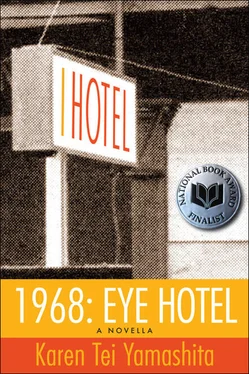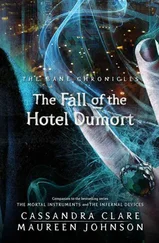Those days Chen only thought of Edmund’s work—Edmund’s brilliant scholarship, Edmund’s genius, the tragic loss of Edmund. Chen had realized that there would be no outlet for his own poetry, and that like his own teacher before him, his writing was out of touch with the people. Who were “the people”? They were young people like Paul and Jack, who had a vision for a new literature. It was now their turn. Of this new generation, only Edmund had read Chen’s poetry and knew its flavor and value, but Edmund was no longer. Paul’s father’s newspaper was no longer. It was a limited readership in a foreign land. He could write equally well in French or English, but he did not find his creative voice there. He was not a Nabokov or a Conrad, in that sense. Out of necessity, he had become a scholar and a translator.
He hid his slight intellectual disdain of Paul’s project, which seemed to him dislocated from literary history whether Western or Asian, but especially Asian. He knew that it was a breaking away and a breaking out, that someone had to stand up to American racism and to claim American English. He knew the political meaning of literary acts. He knew that if Paul and his generation of writers wanted a history, they would have to dig it up and invent it for themselves. He believed in this and accepted his small part: consulting, translating, offering historic accuracy and money. But Paul sensed what Chen would not admit: how much Chen missed Edmund and how he had thought that Edmund would eventually play out his political calling for more literary pursuits. So it’s not only a question of the role of your teacher, a role that might arise from happenstance, but also your role as a student, finally chosen to succeed. Paul knew that Chen had chosen Edmund.
It shouldn’t have mattered. Paul loved Chen, and Chen loved Paul. But the elegant portrait of the Chinese man and woman with the flower bouquet told Paul more than he wanted to know. Paul saw the soft features of his mother that matched his own, his own questioning eyes. And the beautiful Chinese groom was Wen-guang Chen. Paul slipped the photos back into the tin can, walked away from the house in Marin, following the winding streets down from its overhanging cliff.
After some time Chen checked his watch and turned on the evening news. Walter Cronkite presided from his desk as a frantic crowd of people scaled the walls of the American Embassy in Saigon; others fought to jam themselves against and even hang off waiting helicopters.
“Paul!” Chen ran from the room, but Paul had boarded the ferry and was crossing the bay back to Chinatown.
9: Authentic Chinese Food
How many places you gotta go before you find a decent bowl of noodles? Two? Three? Ten? Decent in this town—O.K., two, three, why not? We got standards and competition, so for decent, it’s not a problem. But if you’re serious, if you take your noodles seriously, you got to do your homework. Now I tell you what: true noodle connoisseur, he takes his noodles late at night. Gotta be after nine, earliest. Later the better. Midnight. You know why? It’s the soup; all day long the bones and leftovers getting thrown in that pot, simmering down easy, see. Already your choices narrowed, right? Gotta be those joints open to the wee hours.
Chen, see, he’s got what I call the palate. So he does the noodles tour. Not like a tourist thing, more like a quest. Not that he couldn’t make quality noodles himself. It’s the gritty kind he’s after, the kind you can only get in a busy kitchen at the end of the day. It’s a return to his bohemian days, but now he’s got money. Could be it’s an opera or a concert, classy event like that, or the last showing of a movie. Could be it’s a smoky house of jazz and blues. That’s just the set-up. Then he peels away for the noodles showdown.
So that’s how I meet Chen Wen-guang. I call him Wen for short. It’s one a.m., and we’re at the counter side by side at the Cathay. We got the same bowl of noodles, ’cept he’s dressed nice. Madison Avenue’s finest. ’Course by this time of night, he’s got his silk tie stretched out and thrown over his shoulder. Jacket is hanging off the stool behind him. Time was I could afford suits like that, make a killing back of Lucky M and go out and buy me the best. Pinstriped, double-breasted, silk hanky. But that was before my union days.
Wen’s got his eyes closed, concentrating. Then he takes up a slurp of the noodles and gets the texture between his teeth. I look at him, and I say, “Pork neck. Could use a few more.”
He says, “Snout. That would do it, too.”
And I know he knows. It’s the sticky cartilage that gives a soup grip. I’m impressed.
Then he says, “And some more white pepper.”
He nabbed it.
And that’s how it started. I say, “Have you tried Chop Suey House over on Post?” And we meet there the next week, and every week practically we’re on the quest.
So one night I tell him this story:
Long long time ago in a faraway place, two lovers meet every solstice, summer and winter. That’s the only time. Twice a year. You know, the gods. They control everything in those times. So those lovers they make the most of it. You bet. Having sex this way and that, like in those Indian instruction books, Kama Sutra. Hey, I know my stuff. Pathetic old codger like me. That’s me in book six. But I been to every other book. Yeah, I been there. O.K., nowadays Joy of Sex , right? Like that. You use your imagination. Wet. Sticky. Hot. Rolling around. Running around. You got a chance only twice a year, you better be good. You remember your best times and then you double that. No, you triple that. Imagine that. That’s probably why the gods prohibited it. They were jealous.
Then, you know, after you spend that kind of energy, you gotta eat. Now, this is the important part. This is when the lovers appease the gods, or who knows, maybe they won’t let them come together next solstice. Hey, it can’t be just any food, rush out and get a burger. Young people these days think porno and burgers. No, these lovers have the palate. Palate of the gods. Gotta be maybe a ten-course meal. They do the jan ken pon for who dishes up the first course, and then it’s back and forth, each one trying to outdo the other, appetizer to dessert. Now this is some good cooking. Finest ingredients. Highest quality. And everything perfect like a concert. Pungent dishes followed by subtle and refreshing. Crunchy to smooth and succulent. Chicken to pork to duck to beef to fish.
So I tell Wen this story. I say to him, “You know this story? It’s a classic.”
He looks at me like, if anybody knows a classic, he’s the one. Stuck-up son of a bitch. I can say that, you know. He’s my friend, like a kid brother.
I say, “Every Asian people has a version of this very story. Japanese, Korean, Pilipino, Vietnamese. Some things different. Sometimes the sex before. Sometimes after, but basically the same story.”
“And different menus.”
“Now you’re talking.”
I get serious. “This is the great myth of Asian peoples. How can the West compare? All they got is that poison apple.”
Wen laughs.
“Think about it. Innocence to knowledge. Good and evil. And then they get to have sex. What kind of screwed up thinking is that?”
Wen orders another beer.
“Sex is everything. Beginning of the universe. It’s one big—” My gesture says it all.
Wen and I toast.
I continue, “But it’s more than meets the eye. Complicated. Two cooks can’t live together!”
“What do you mean?”
“It’s true what they say. Too many cooks, you know? Got to be one palate at a time, but like a balancing act. You Chinese say, yin and yang. And each gonna offer the other the most delicious dish possible, but it’s also competition. It gets more intense with each dish. So the gods know what they’re doing. Keep the lovers apart, they get the best possible meal.”
Читать дальше












